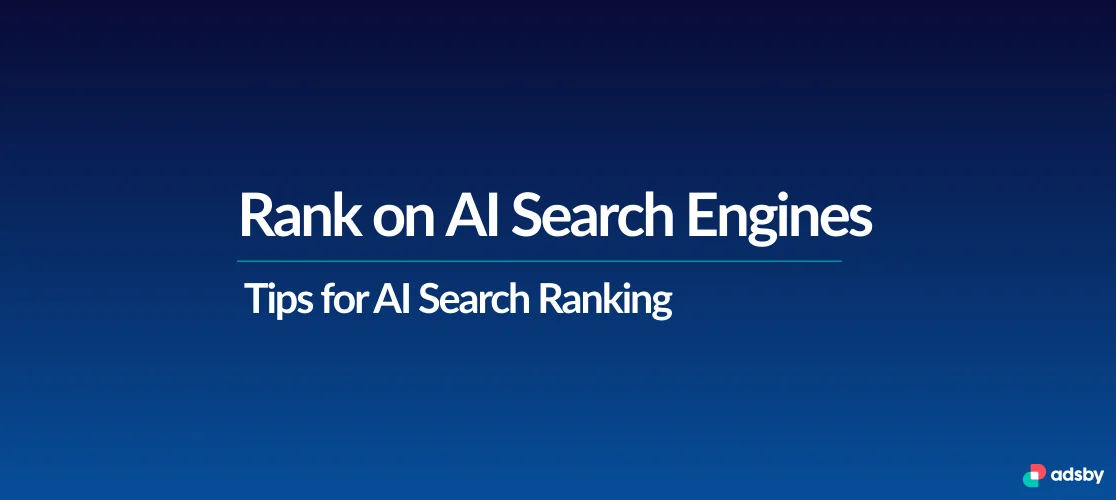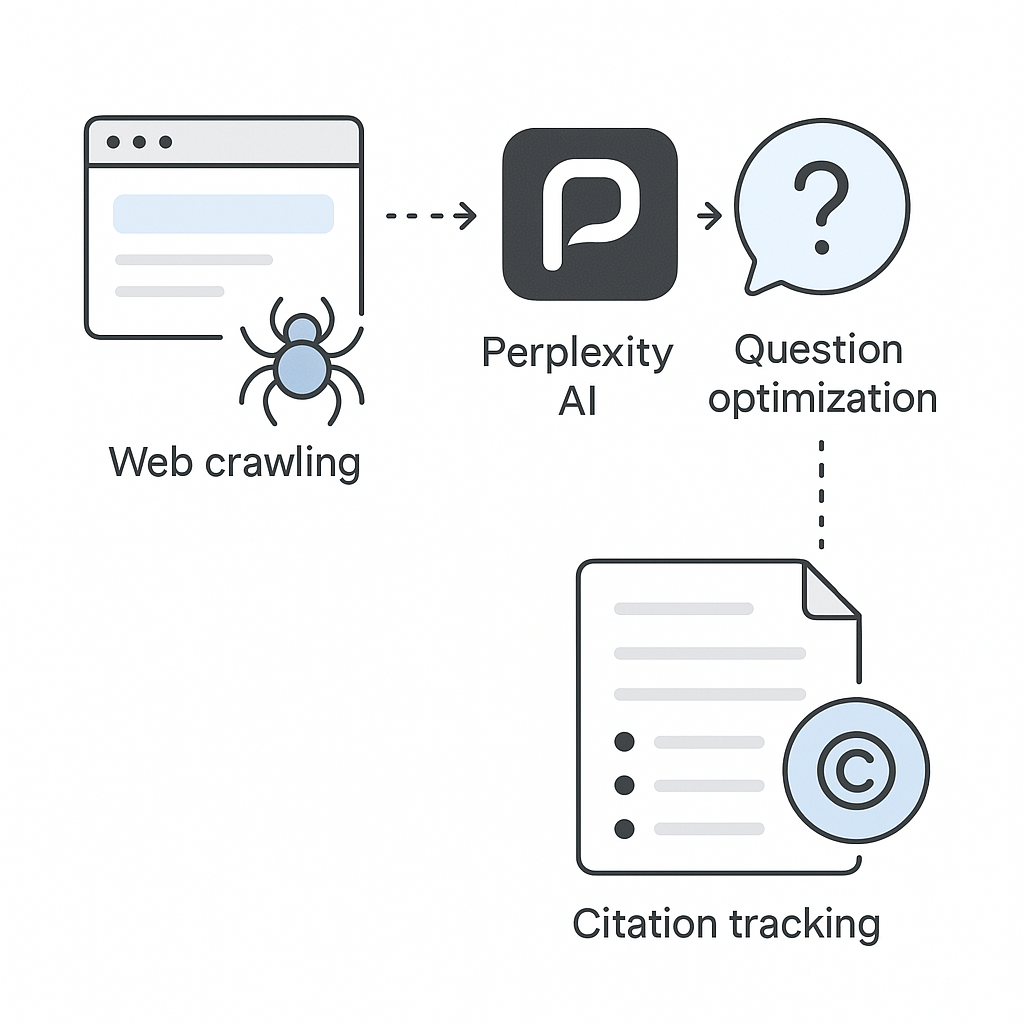
AI search engines are fundamentally reshaping the way people search for, access, and consume information on the internet. Unlike traditional search engines that rely heavily on keyword matching and backlinks, AI-powered systems such as ChatGPT, Perplexity, and Google’s Search Generative Experience (SGE) focus on understanding context, user intent, and delivering conversational, synthesized responses in real time.
This shift has major implications for content creators, marketers, and SEO professionals. To stay visible and competitive in 2025, websites must be optimized not only for traditional algorithms but also for the evolving standards of AI-driven discovery. That means structuring content semantically, building authoritative signals, and writing with clarity and intent.
In this guide, we’ll dive deep into how AI search engines operate, what types of content they prioritize, and actionable strategies you can implement to increase your chances of being selected and cited by AI search tools. Whether you’re aiming to appear in a ChatGPT response, rank in a Perplexity summary, or be featured in Google’s AI snapshots, this article will help you understand what it takes to succeed in the era of AI-first search.
What Are AI Search Engines and How Do They Work?
AI search engines are platforms that use machine learning models, natural language processing, and semantic search to return more contextually accurate and conversational answers. Unlike traditional keyword-based engines, AI engines aim to understand intent, not just matching terms.
Popular examples of AI search engines in 2025 include:
- ChatGPT with browsing & plugins
- Perplexity AI
- Google SGE (Search Generative Experience)
- You.com
- Zilliz-powered Vector Search Engines
These tools use large language models (LLMs) such as GPT-4, Gemini, or Claude to analyze vast volumes of data and generate accurate, context-aware answers in real time. In many cases, they also reference specific sources to enhance credibility and help users trace the origin of the information.

Is ChatGPT a Search Engine?
ChatGPT is not a search engine in the traditional sense, but it has started to play a similar role in how people find information. With features like browsing, API access, and plugin support, it helps users discover content in a conversational way. As more people turn to it for answers, being included in ChatGPT’s responses has become an important part of visibility on the web. This shift makes it essential to create content that is clear, reliable, and easy for language models to understand and reference.
How Do AI Search Engines Discover and Index Content?
Unlike traditional search engines that depend on crawling and link analysis, AI engines:
- Ingest data via APIs, structured content, and semantic signals
- Rely on language model outputs to decide what’s “answer-worthy”
- Prioritize clarity, source trustworthiness, and contextual relevance
Can You Submit a Site to AI Tools?
There is currently no official “submit your site” option for most AI models like ChatGPT or Claude. However, platforms such as Perplexity.ai and You.com offer limited control through publisher programs or indexing suggestions.
To improve your chances of being discovered by AI tools, focus on the following:
- Make sure your robots.txt allows crawling.
- Add structured data and FAQ sections to your content.
- Get backlinks from trusted, high-authority websites.
- Keep your content clear, well-structured, and easy to scan.
These steps help AI systems understand, prioritize, and reference your content more effectively.
How AI Agents Crawl the Web?
Some AI tools like Perplexity use their own crawlers, such as PerplexityBot, while others depend on search APIs from platforms like Bing. These systems scan and evaluate content from across the web to generate accurate answers.
To make sure your content is accessible to these crawlers, check that your server settings allow them. Also, optimize your pages with these best practices:
- Ensure your site is mobile-friendly
- Keep pages fast-loading
- Update content regularly to stay relevant
Following these simple steps helps AI agents find and favor your content more easily.
What Content Gets Picked by AI Search?
AI search engines focus more on usefulness than on popularity. Instead of relying only on traffic or link volume, they evaluate how well the content satisfies user intent.
To increase your chances of being selected, your content should:
- Directly answer common questions
- Be rich in context and use clear, natural language
- Come from credible and authoritative sources
Well-structured, informative, and trustworthy pages are more likely to be included in AI-generated responses.
Do Structured Data and FAQs Help?
Yes, structured data is highly effective in helping AI systems understand your content more accurately. Schema markup gives additional context to search engines, making it easier for them to identify what your page is about.
Some useful types of schema include:
- HowTo
- Article
- WebPage
Using these formats increases the likelihood that your content will be cited in platforms like Google SGE and Perplexity. Including FAQs also improves clarity and provides direct responses that align with how AI tools present information.
Role of Authority, Relevance, and Clarity
These three factors are now more critical than ever:
| Factor | What It Means | How to Achieve It |
| Authority | Content is trusted and cited by reputable sources | Get backlinks from high-quality, relevant sites |
| Relevance | Content matches real user intent | Focus on solving specific problems |
| Clarity | Content is easy to read and understand | Use simple language and clear formatting |
How to Optimize Your Website for AI Search in 2025
Optimizing for AI search means focusing less on keywords and more on clarity, structure, and intent. Your content should be easy for AI systems to read, understand, and trust. This includes using proper headings, adding structured data, and writing in a way that matches how people naturally ask questions online. Let’s break down practical steps you can take right now.
How Should You Format Content for AI Tools Like ChatGPT?
Content that ranks well in AI tools tends to follow these rules:
- Use natural language, not keyword stuffing
- Include direct answers to questions in bold or at the top
- Break content into clear H2-H3 sections, like a guide
- Add FAQs at the end of articles
- Make sure your page has a meta description and clear title tags
How Can You Make Your Content Easy for AI to Understand?
A few advanced tips:
- Use semantic HTML (e.g., <article>, <section>, <h2>)
- Add OpenGraph and Twitter Card tags
- Make sure your content has clear internal linking
- Include quotes, stats, or examples that models might surface in answers
How to Appear in ChatGPT or Perplexity Search Results
These platforms don’t work like Google, so visibility means something different.
ChatGPT (with browsing) will often cite from:
- Well-ranked sources in Bing or Google
- Clear answers to direct questions
- Structured articles with bullet points, summaries, and semantic clarity
Perplexity directly crawls the web and gives visible credit to sources it trusts. To increase your chances of being cited:
- Add your domain to the PerplexityBot index by allowing crawler access in your robots.txt file
- Optimize your content around specific questions users are likely to ask
- Monitor when your pages are cited and update your content to improve clarity and coverage
Can You Control What ChatGPT Shows?
Not directly. But you can influence what it sees by:
- Getting cited by reputable sources
- Embedding FAQs and how to answers
- Writing in formats ChatGPT prefers (concise, fact-based, friendly tone)
Common Mistakes That Hurt AI Search Visibility
Avoid these pitfalls if you want to stay visible in the AI-first future:
- ❌ Keyword stuffing without semantic context
- ❌ Lack of structured data or schema
- ❌ Publishing vague or thin content
- ❌ Ignoring E-E-A-T (Experience, Expertise, Authority, Trust)
- ❌ Not monitoring what bots are crawling or indexing
- ❌ Forgetting mobile speed and UX optimization
- ❌ Missing clear headers, summaries, and FAQs